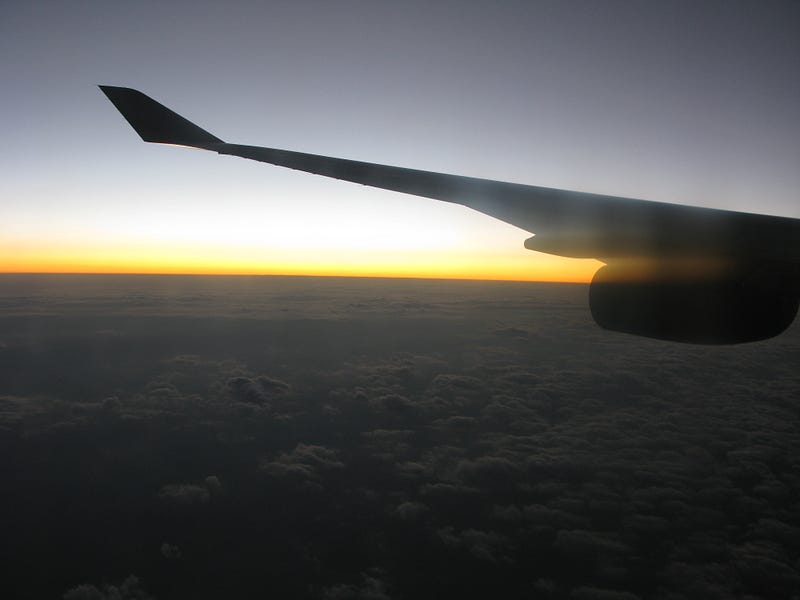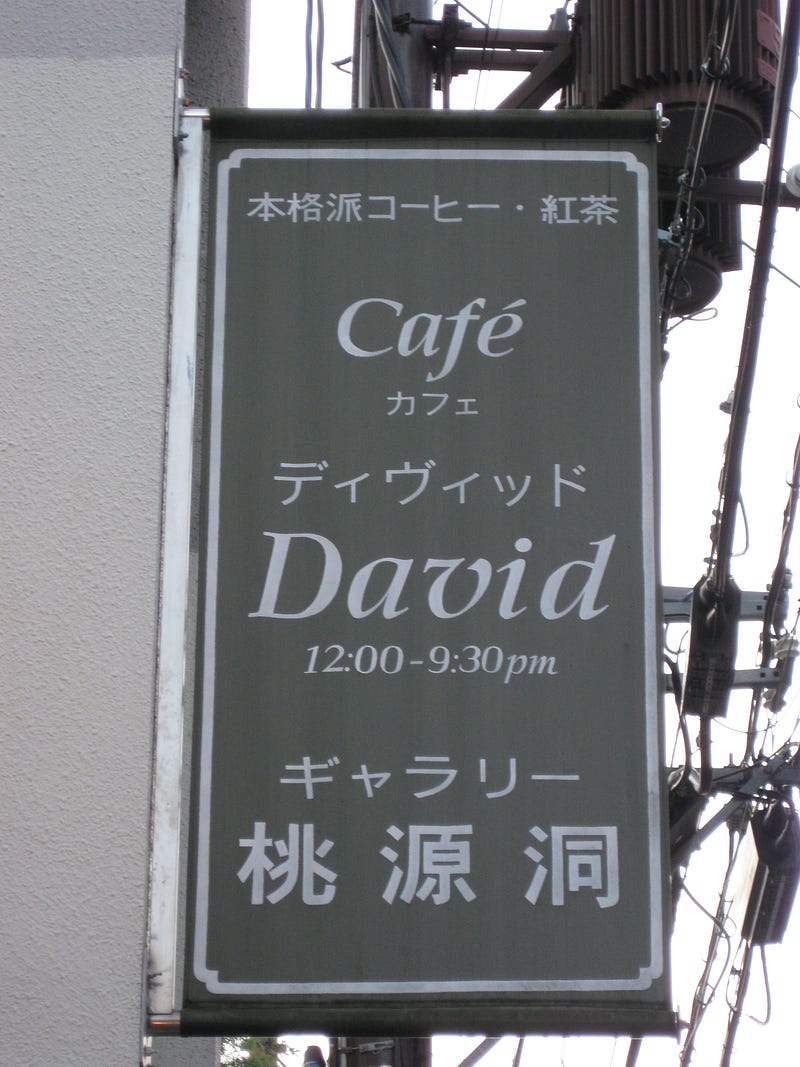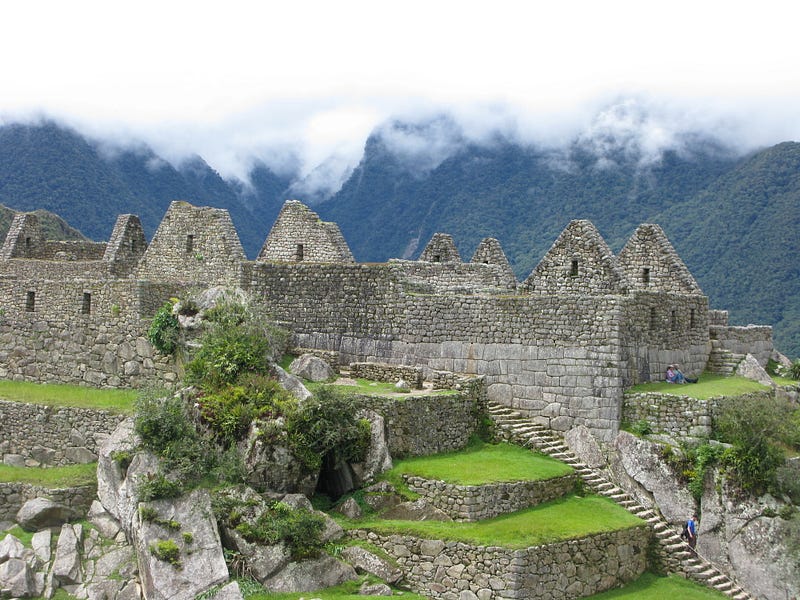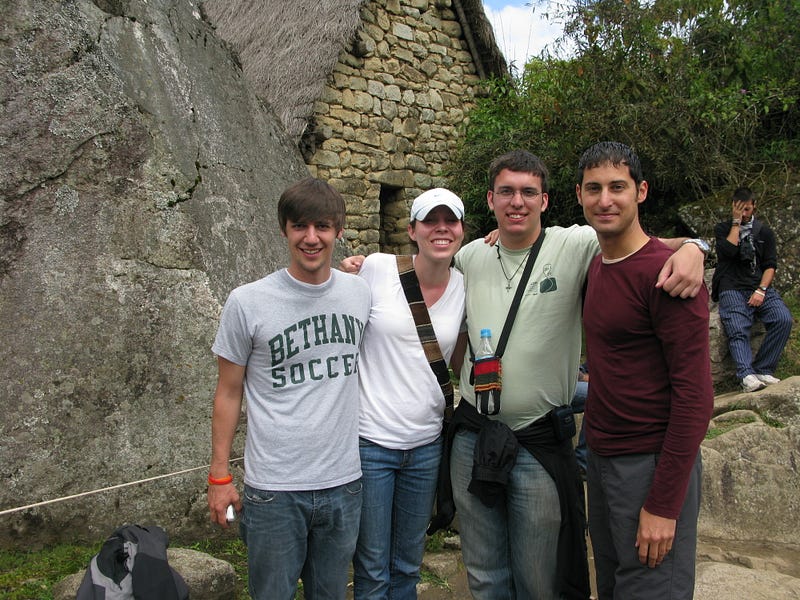
“The real voyage of discovery consists not in seeking new landscapes, but in having new eyes.” – Marcel Proust
I still remember that late-summer evening when I boarded British Airways flight 94. My first flight across the Atlantic in over two decades.
I had seven months planned out. Every continent on Earth save Antarctica. Though I was always big into travel, I hadn’t set foot outside North America since adolescence. I’d lived and visited all over my home continent. But even as the son of two first(ish)-generation immigrants, I had no adult exposure to what it was like Over There.
When asked, I had the usual American-style excuses ready: not enough time, not enough money. They’re powerful reasons when they’re true, and they’re true for many. Fewer than a fifth of the human race has any kind of regular access to air travel. While I’ve been grateful enough to be a part of that fifth, I used the opportunity to stay in my home continent for many years.
Why? Like so many in this country, I fell a bit for the notion that my home continent was kind-of enough, at least for the time being. I never wanted to be a struggling newbie in foreign lands, some awkward guidebook-toting tourist trying to figure out how to ask for the bathroom.

But then, things shifted. My 1990s-era optimism about America was starting to fade — after 9/11, two wars, a misbegotten Presidency, and, ultimately, a real-estate crash. I wasn’t sure if travel would answer life’s big questions, I wrote in my journal, but at least it forces us to look at them from someplace else. In 2008, many someplace elses were needed.
The global rainbow
First off, yes, it happened: I had my mind blown. But not in the ways you’d expect.

First big surprise: all those places cynics had written off as touristy or tired or predictable. OK, some of them were… but many, many, many more were just plain awesome. Not just places, but people. I met a kaleidoscope of them, and all those clichés about fellow travelers and citizens of the world made sense on a truly visceral level. It’s cliché for a reason, I mused, but we all really do have a lot more in common than we realize.
Also: traveling the world was so much easier than expected, or feared. Granted, I was pretty organized, planning some things out while leaving a lot of other things to chance. As for those horror stories about lost luggage and food poisoning and getting robbed? Both happened to me back home—before the trip—but not on the trip itself. Trains and planes (mostly) left and arrived on time. I never got anything worse than a throat infection—and that in a country where I happen to have a doctor relative; a buck-fifty’s worth of antibiotics and I was on my way. Heck, even the weather was great most everywhere I went… except for that minus-twenty week in Beijing. Silver lining: I had the Great Wall almost to myself.

Timing played a role. 2008 marked something of a sweet spot in world navigability: just enough Internet out there to make connecting easier, but not so much as when filter bubbles closed us off. Even with the financial crash hitting big back home, overseas—at least where I went—the party was still going on.
Meanwhile, I rid myself of many preconceptions. I used to think of the Old World as, well, old. Dirty. Used up. Fractured by ancient hatreds. Instead, I saw a gleaming new Europe, one continent like never before, stitched together by amazing high-speed trains. Berlin had just finished putting itself back together. London looked nothing like the fusty old place I remembered from when I visited as a teen. This world was slick, modern, and—in the right places—party central.

That was true for me on another level: I found thriving LGBTQ life in Tokyo, Cape Town, Singapore, Lima, and (yes) Moscow—on top of well-known standbys like Amsterdam, Bangkok, and Buenos Aires. I encountered friendly locals in Jordan, Cambodia, and Peru. Bathed in 2008 Olympics afterglow, I marveled at China’s recent rise—that remarkable stadium complex in Beijing; the elegantly restored historic neighborhoods of Shanghai; those incredible airports; those young professionals sipping lattes at Starbucks whose parents, I mused, might have endured life in labor camps.

I also encountered fellow Americans, and while some impressed me, others, well… let’s just say that, with the Yankee laser-focus on career ambition, few Americans with wherewithal to travel were doing it “just be” style like young (or not-so-young) Europeans, Australians, or South Africans on their Gap Years. Heck, that was practically the point of the bestseller of the time, Eat, Pray, Love.

Maybe that’s what made me celebrate the world I encountered, and contributed to my attitude that, while we in America were relapsing into partisan bickering and economic mismanagement, the rest of the globe was figuring it out. Waking up from history.
An Atlanticist’s Kool-Aid sugar crash
Coming home in mid-2009, I held on, wanting to believe the great stuff I’d experienced could translate into lessons learned back home. Our new leadership had to get it, understand the lessons of the world and move America into the leadership role it always professed to hold. Especially then, since that leadership was headed by a man who embodied the connected world: a Middle American Mom, an East African Dad, and a birthplace smack in the middle of Earth’s biggest ocean. I watched his election late into the night from a sports bar in Prague, audaciously hoping that this would put us back on track, back to the hopeful 1990s and those dreams of a New World Order.
You can guess how I’ve been feeling over the past weeks, or for that matter, the last half-decade.
I used to repeat the mantra “war in Europe is no longer possible” so many times that it must by now be etched into my skull. I bought Thomas Friedman’s Golden Arches theorem in a big way, enjoying that company’s offerings in once-unthinkable places, though more for the symbolism than for the Big Macs.

I think there’s a kind of perverse naïveté among Gen Xers like me— a generation who otherwise rank as history’s greatest group of cynics. We learned in school about the scary first two-thirds of the Twentieth century: two World Wars, the Bomb, the Iron Curtain, the Cuban Missile Crisis, Vietnam, Ronald Reagan’s Evil Empire speech.
But it’s what came after school that marked us: watching that same Wall come down, peacefully no less; the Evil Empire disintegrating not long after; South Africa freeing, then electing, Nelson Mandela; Northern Ireland forming a lasting peace; the Middle East coming within sight of doing the same. And all that before Y2K ended up a giant party. Apocalypse? Pshaw. I mean, what other generation became adults just as a book literally named The End of History came out?
Zen and the art of being wrong
Predicting the future is dicey business, but you get a pass for failing as a fortune-teller. What’s more embarrassing is to realize you got it wrong about the present. What was right before my eyes. Being out there, in the moment, in the world, and not really taking in what’s before you. Granted, I was hardly the first person to get out there and see what I wanted to see; I doubt I’ll be the last.
What did I miss? My intellectuals and party friends (sometimes the same people) in London were grand… but didn’t help me understand, or even uncover, the side of Britain that voted the way they did six years later. Leave that marvel of post-World War II unity? Insanity. Looking over the lights of Cairo, I dreamed of a city ready for a glorious revolution… sure, it came, a scant three years later, but didn’t change much of anything in the end. Nowadays it’s hard to say Egypt’s any better off than it was fourteen years ago. I met up with gays in Moscow, oblivious not only to Putin’s recent war in Georgia, but also his incipient homophobia at home. I didn’t make it to Ukraine, but in years since worked with offshore tech teams from there. I always thought of their country as a part of the connected world I experienced, those talking heads on Zoom calls an echo of places I did visit, like Czechia or Germany. I wonder how those former colleagues are holding up these days.
We may feel far from it, here in North America, but it’s no less heartbreaking, reading headlines that seem torn out of history books. Clearly, some of us held on to the heady optimism of the 1990s too long, felt we’d transcended the ancient cruelties we as a species have visited upon each other for eons. We reached the brink of Armageddon, went the notion, sometime around the Cuban Missile Crisis, and have since been on a decades-long process of climbing out of it.
Except, history isn’t always a smooth climb upward. For many of us, coming to terms with that is a feature—a limitation, perhaps—of a whole life philosophy. I’ve long been critical of pessimists who believe in an intractable “human nature,” the inalienable human feature conservatives so often cite as the reason things will never really get better. Maybe I thought otherwise, that human nature’s push for self-preservation finally saw the light after the nuclear age, realized there was no way out of the stalemate but to become better to each other.
Hope and (more) travel
Utopian? Maybe. Or maybe just too soon. H.G. Wells—and Star Trek, Wells’ biggest modern-day standard bearer—posited that we can grow up as a species, sure, but only after enduring great cataclysm and existential shift from the outside (I’m looking at you, Vulcans). Simply proclaiming the Cold War over and nuclear war unthinkable wasn’t enough. And no matter how much of the world one sees when traveling, the picture you bring back is always going to be incomplete.

Don’t get me wrong: I still very much believe in going Over There, believe it’s a key lynchpin for breaking barriers, widening horizons, and trying to build a more complete picture for us and for generations to come. It’s something I aim to pass on to our young son, now taking his first steps in new places.
Maybe it’s partly for his sake I haven’t fully let go of big-picture hope. With everything going on these days, it seems improbable to imagine that we collectively will figure things out one day without great cataclysm and destruction. But then, everything’s improbable—which is maybe both the lessons of one’s younger travels, and a reminder to all idealistic liberal internationalists. The future is always murky, and even given the darkness and pessimism of the past years and weeks, nothing in history is ever over. Or guaranteed.